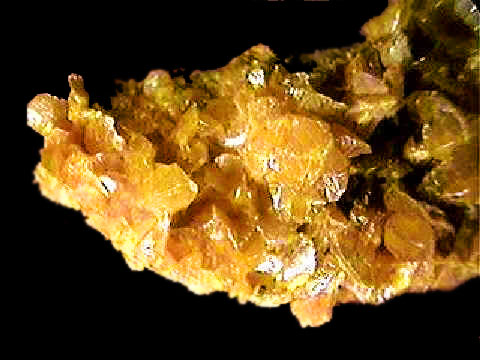He can change what he says at will(信口雌黃)
In the Jin Dynasty of China, there was a
celebrity who was also an important official. His name is (Wang Yan).
There is a story about him in history
books.
His appearance is very good, his
personality is very smooth, he doesn't like to offend others. He never insisted
on his position.
He admired the thoughts of Laozi and
Zhuangzi very much, and he often shared with others his reading experience on
the philosophy of Laozi and Zhuangzi.
When he is sharing his ideas with others
and others refute him or raise questions, he always answers.
I think what you said is also very
reasonable, I think I might be wrong. I am going to correct my thoughts.
The color of ancient Chinese paper was
yellowish, so if people wrote a word wrong at that time. Orpiment will be used
to cover up the wrong word.
Therefore, some people describe him as
having a piece of orpiment in his mouth at all times. He can change what he
says at will.
This idiom is used to describe a person who
speaks casually without thinking. It is also used to describe a person who
distorts facts.
Dear friend, what inspiration or thoughts
did you have after hearing this story.
How would you evaluate him? Are there any
friends you know who have the same personality as him?
I hope this story will give you some new
gains.
信口雌黃(He can change what he says at will)
中國的晉王朝,有一個名士,他也是一個重要的官員。他的名字是(王衍)。
歷史書上記載了一個他的故事。
他的外型很好,他的個性很圓滑,他不喜歡得罪別人。他從不堅持自己的立場。
他很推崇老子與莊子的思想,他常常與別人分享他對於老子與莊子的哲學的讀書心得。
當他在與人分享他的想法而別人反駁他或者是提出質疑時,他總是回答。
我覺得你說的也很有道理,我看或許是我說的不對吧。我改正我的想法好了。
中國古代的紙顏色偏黃,因此那時候的人如果寫錯一個詞。就會使用雌黃這種礦物來遮蓋那個錯誤的詞。
因此有人就形容他,他是嘴巴裡面隨時都含著一塊雌黃。他可以隨意地更改他說出口的話。
這句成語被用來形容一個人不經思考就隨便說話。也被用來形容一個人扭曲事實。
親愛的朋友,你聽完這個故事有怎樣的啟發或有怎樣的想法呢。
你會如何評價他呢?你認識的朋友中有與他一樣個性的人嗎?
我期待這故事能讓你產生一些新的收穫。
出處為晉書-卷43-王衍
https://zh.wikisource.org/wiki/%E6%99%89%E6%9B%B8/%E5%8D%B7043
